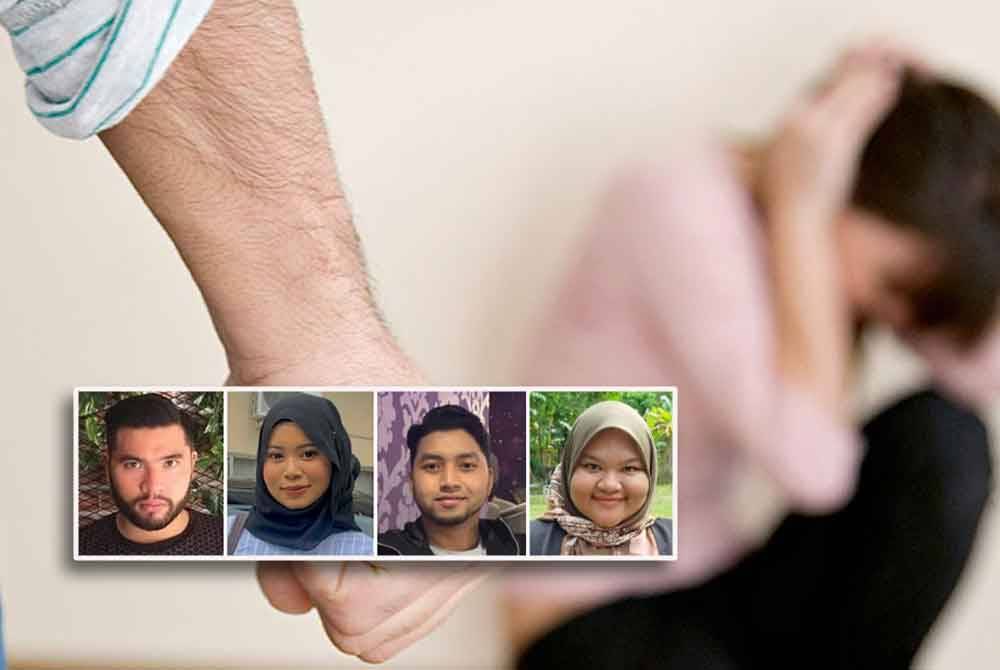Sharing domestic violence stories on social media: A path to justice or harm?
Motivational and counselling consultant Hushim Salleh stated that communication had been the key to saving a marriage, as it serves as a medium to express everything that had been bottled up inside.

STORIES of domestic conflicts were often among the most popular searches, especially on social media.
Various posts about family conflicts had been revealed, indirectly contributing to a trend among both youth and adults concerning these issues, without fully considering the potential risks involved.
Motivational and counselling consultant Hushim Salleh stated that communication had been the key to saving a marriage, as it serves as a medium to express everything that had been bottled up inside.
As a result, diverse feedback emerged regarding the issue of domestic violence, triggering debates among the public on whether such cases should have been shared on social media.
There had been both supporters and opponents, each with their own arguments and perspectives.
Support:
A Way for Victims to Save Themselves
“I agree that victims of domestic violence should have shared their experiences of abuse.
In my opinion, it may have been seen as exposing someone’s flaws, but if it was the only way to reveal the actions of an oppressive perpetrator, could it still have been considered shaming?
I believe that victims of domestic violence did not intend to shame their abusers but were driven to act this way due to strong factors.
The safety of oneself and children plays a significant role in this matter. So, if society still considered this as exposing flaws, it would have been better for us to lend an ear to hear the grievances of oppressed victims.
We didn’t want victims, especially women who deserve protection and love, to become victims of a cowardly husband’s physical abuse, potentially leading to death.”
– Television Executive, Arif Aiman Ahmad Lela, 35
Social Media as the Most Effective Medium
“I believed that sharing domestic violence cases on social media had been one of the most effective ways to gain attention and justice for oppressed victims.
This wasn’t about shaming the perpetrator but rather about raising public awareness and ending the victim's suffering.
I’d observed a trend where social media acted as a catalyst for responsible parties to take action on cases that went viral.
This demonstrated that with pressure and public exposure, such cases may have received the attention they deserved from the authorities.
This situation was a form of discrimination against victims.
Therefore, I strongly agree that social media should have been a platform for dissemination, as it could expedite justice for victims while raising public awareness about the issue.”
– Private Sector Employee, Shafiqa Zafirah Mohd Zainuddin, 26
Oppose:
A Sin to Expose a Partner's Flaws
“I disagree with victims publicising their domestic violence experiences on social media because it was akin to airing the perpetrator’s dirty laundry and that of their marriage.
In Islam, exposing someone’s flaws, especially your partner’s, was considered sinful regardless of one’s intentions.
As a husband, I believed that the sin was not only tied to intentions but also to openly exposing others’ flaws.
It would have been permissible if there were no other way and the victim couldn’t endure any longer and wanted to report it to the authorities by providing evidence for divorce proceedings.
However, if the victim shared such details on social media merely to highlight their partner's flaws without valid reasons, it shouldn’t have been done and must have been avoided.
In my view, the husband and wife should communicate peacefully and avoid airing the issues that occurred within the marriage.”
– Software Engineer, Mohammad Aliff Iskandar Mohd Zaid, 24
Disrupts Marital Harmony
“I believe that marital problems should have been discussed privately between the couple and not made public.
This is because exposing marital issues openly could have had severe repercussions on the harmony of the relationship between husband and wife.
Problems should have been resolved privately and through careful discussion between the couple or with the assistance of professional third parties, such as counselors or authorities.
Publicising the matter on social media not only expose flaws but also created negative perceptions of the accused partner among the public.
This also allow outsiders to give opinions and interfere, which could have worsened the situation.
It's not impossible for a victim’s social media disclosure to provoke feelings of shame, disrespect, or resentment between the couple, making it harder to resolve the problem.
Such issues should have been handled wisely and carefully, allowing both parties to strive to improve the relationship.”
– Baker, Nurin Mirza Yusof, 27














